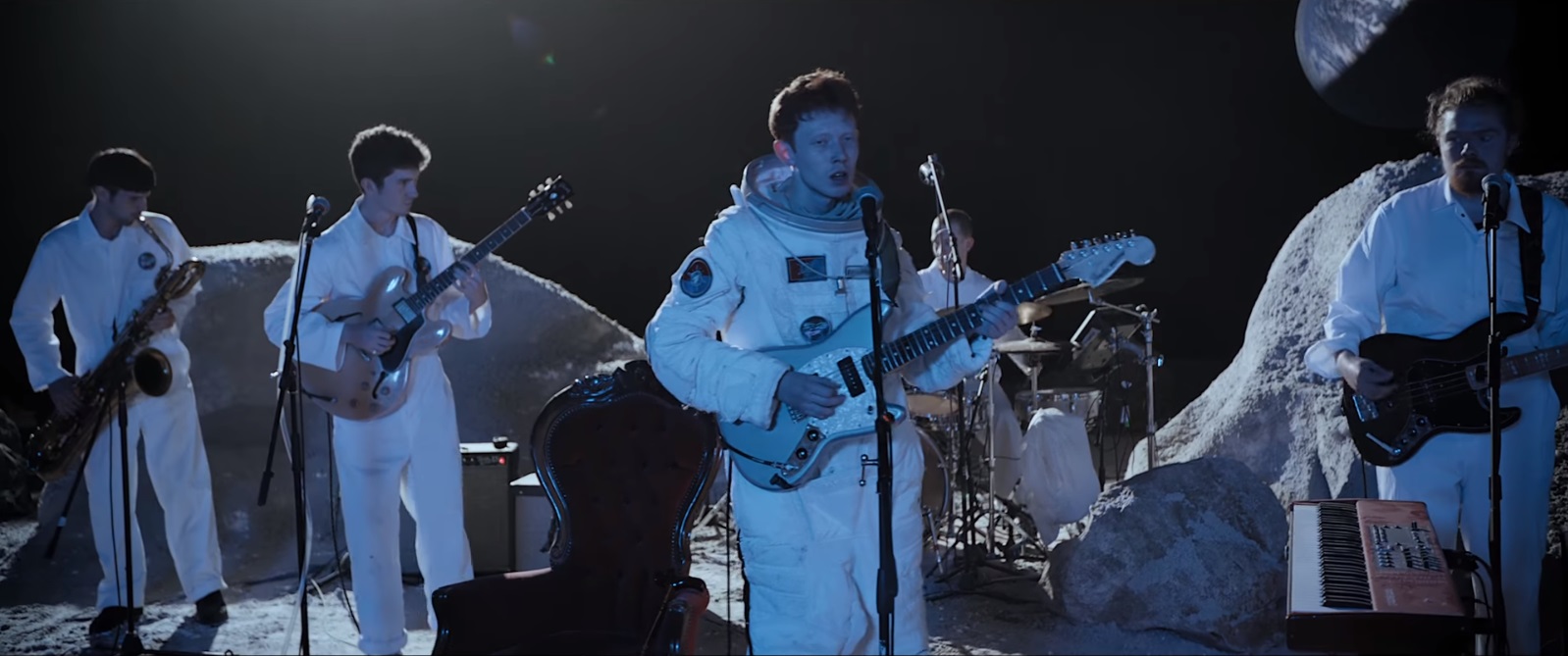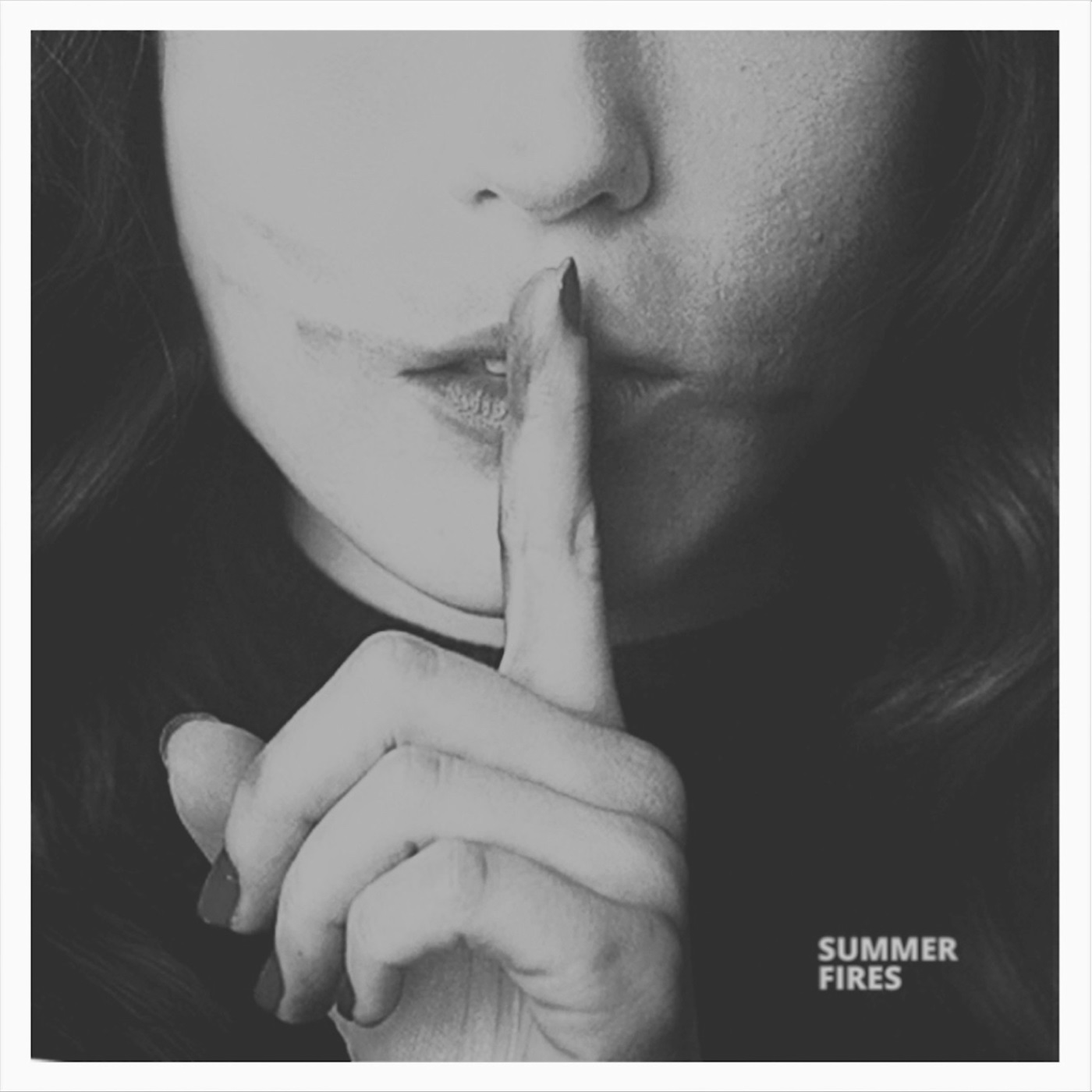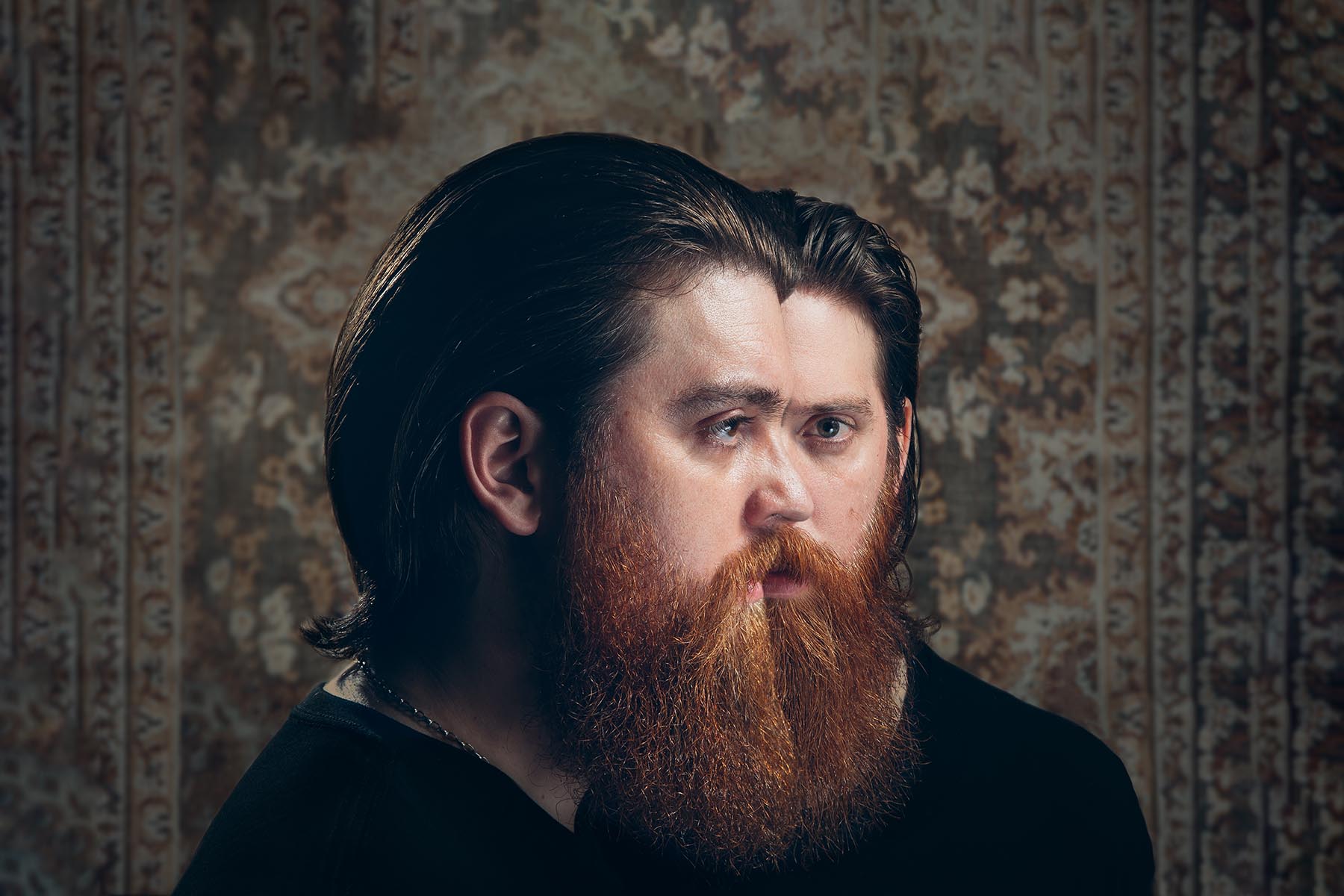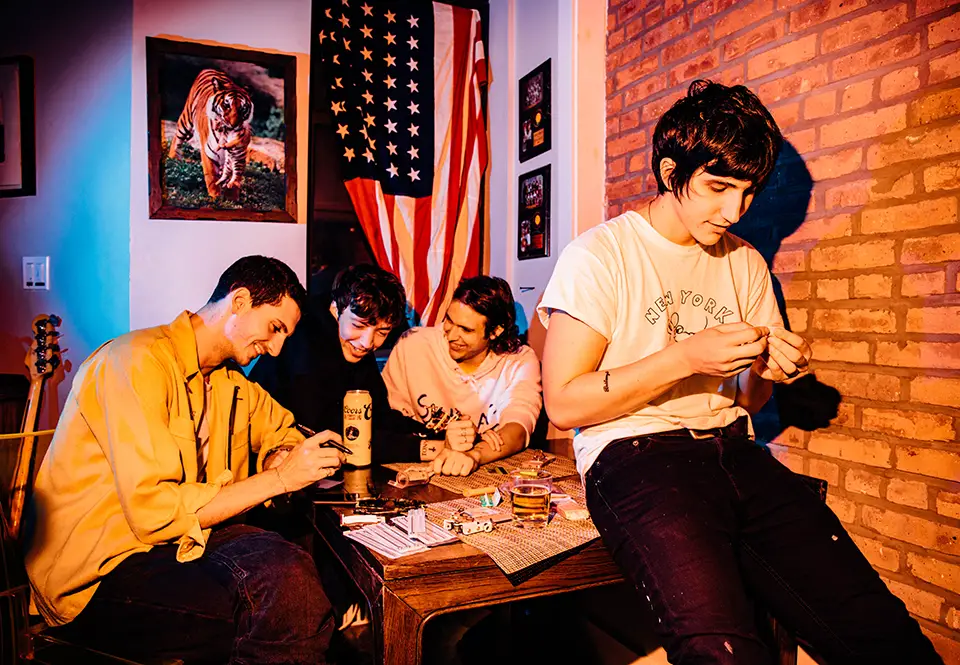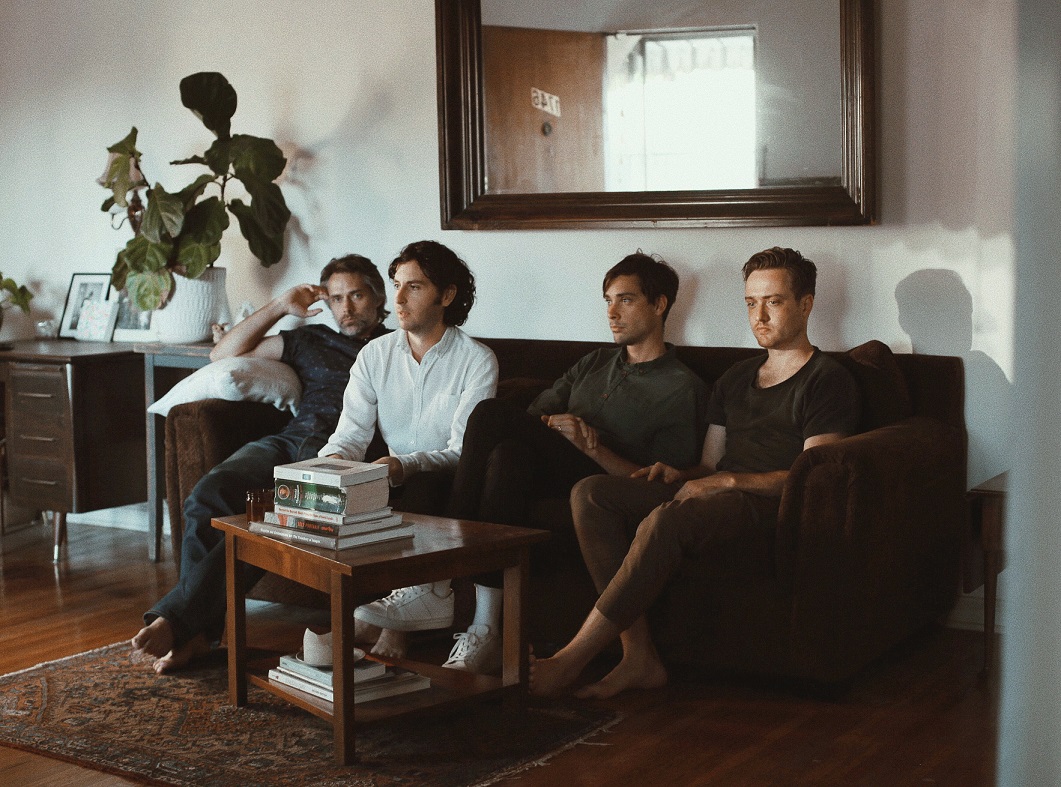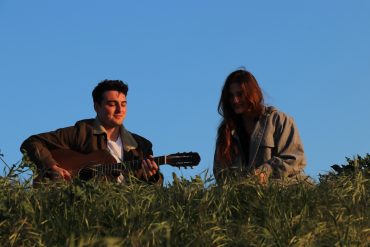Australian sensation Ruel goes track-by-track through his cinematic debut album ‘4TH WALL’ in an intimate conversation about film inspirations, musical influences, and his own artistic evolution.
“I DON’T WANNA BE LIKE YOU” – Ruel
It’s been five long years since then-15-year-old Ruel Vincent Van Dijk introduced himself to the world through his debut EP Ready, praised (by us) at the time as “one of the most heartfelt and sincere debut EPs we have ever heard… an overwhelmingly vulnerable surrender to the soul full of love, light, and character.” The years since have seen Ruel quickly rise to prominence, establishing himself as one of Australia’s foremost voices in pop and sharing the best and worst parts of his “turbulent teens” with the whole world through song. He’s released three EPs along the way, earned five platinum records, amassed over two billion streams worldwide, and holds the title of youngest artist to sell out the Sydney Opera House – twice! – and the best part is, he’s only just getting started.
Now aged 20, the British-Australian singer/songwriter and pop prodigy is ready for his formal (re)introduction. Years and years in the making, Ruel’s debut album is as passionate as it is emotional; soulful with an edge, the cinematic 4TH WALL is a radiant coming-of-age record diving deep into relationships – both with others, and with ourselves. No stone is left unturned and no feeling goes un-explored as Ruel balances the pop and alternative music worlds, resulting in a musical experience that’s as inspiring and energizing as it is aching and intense.
For an artist who’s been in the spotlight since his young teens, Ruel’s music is impressively relatable.
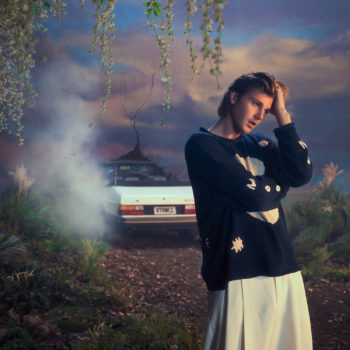
Your smile’s like a dark cloud
Can’t wait for the fallout
Big joke but the kids don’t get it
Big words but it’s not poetic
Lost touch tryna save me
No time for it lately
Big sigh but it’s so dramatic
It’s not like I don’t care, don’t understand
I’m not gonna get there holding your hand
Temperature is rising watch the sunset
Know I better say this before I forget
– “I DON’T WANNA BE LIKE YOU,” Ruel
Released March 3, 2023 via RCA Records, 4TH WALL is a critical triumph, as well as a special milestone for Ruel. The follow-up to his EPs Ready, Free Time, and Bright Lights, Red Eyes finds him working together with his longtime collaborator and producer M-Phazes (Mark Landon) to create a visceral series of highs and lows that hit hard and leave an instant, lasting mark.
“I’ve been trying to write this album for over three years,” Ruel tells Atwood Magazine. “We kept going in and starting it, and then either got bogged down in the details or just didn’t have time to finish it, because of touring or whatever, and we never actually set aside a proper time to write it, because how I did all the EPs was just two weeks of writing sessions in-between tours over a year and just jamming them all into an EP. That’s kind of how we did it, but that’s not super sustainable. So we’d set aside a bigger amount of time, and then we did that at the start of 2020. I started writing it and wrote a few songs for the record and kind of got an idea of what I wanted it to sound like. I was liking more live-sounding stuff or singer/songwriter, “fuck you,” alternative world sounds. It was really inspiring me, and so I started writing a lot of songs like that, and then I went to LA to basically do the record. I was going to be there for four or five months to write it… And then COVID hit.”
The pandemic understandably took its toll on the writing and recording process, forcing Ruel to return home to Sydney and try his hand at home recording.
“I’m trying to finish the record by myself, just me and a computer trying to learn how to use Logic and stuff, and the music just like… it was so hard to come by for me, because when I’m writing by myself, it’s a lot slower process. I’ll write a song every week or two instead of every day, as I’ve got no one else to bounce off, so I’m constantly second-guessing things. So it just delayed the process massively… I went back to LA in 2021 and I wrote the first half of the record, and that’s where ‘Growing Up Is _____’ and ‘Let the Grass Grow’ came from, and then I went back again halfway through last year and finished it. And that’s kind of where I am now!”
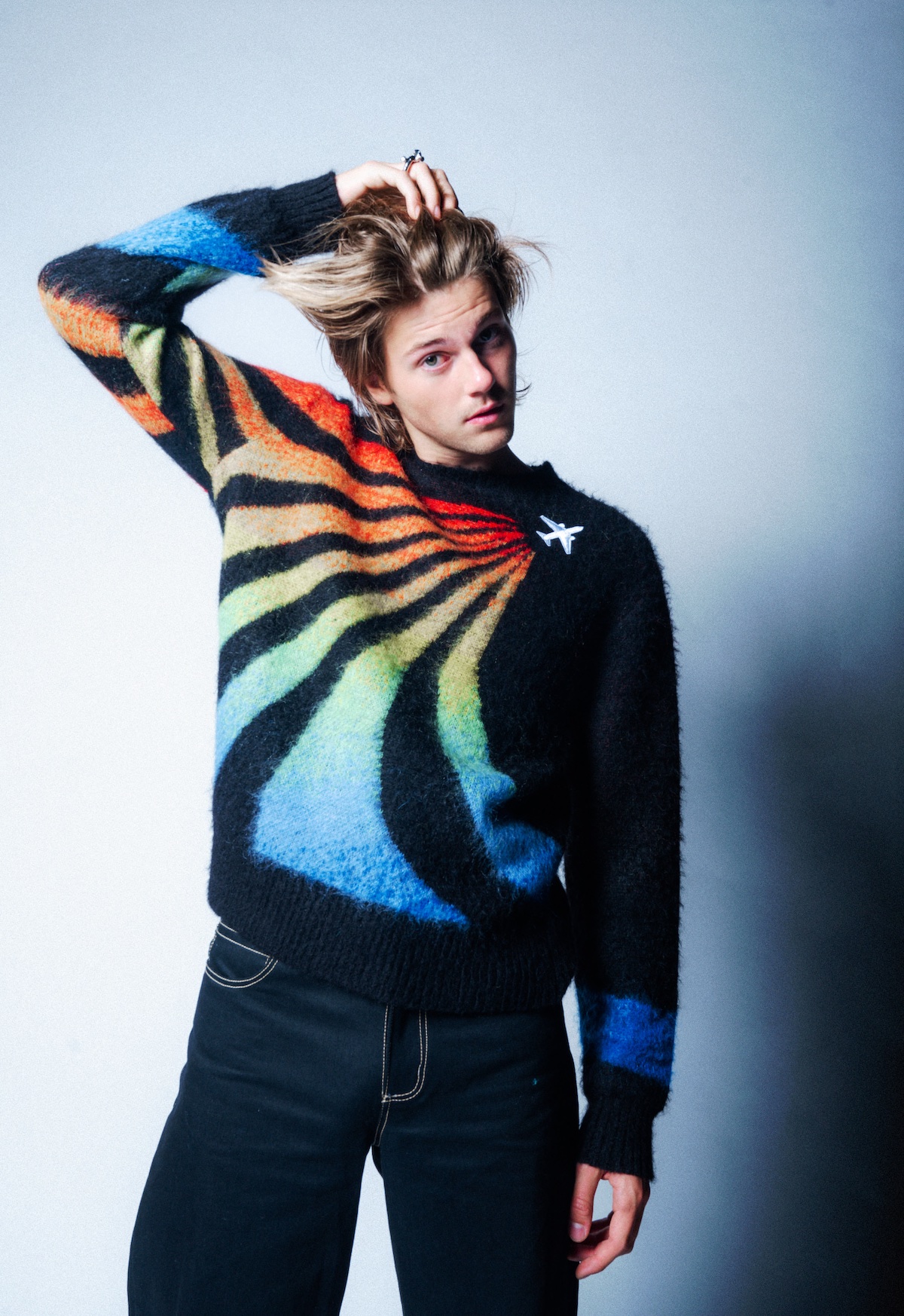
Inspired by his own life and the movies, 4TH WALL is intentionally epic and grand; Ruel magnifies intimate, fleeting moments of connection and emotion into vast, larger-than-life outpourings, capturing a slice of human experience in the process.
“Each song is either from personal experience or grabbing from movies,” Ruel reflects. “I don’t know why, but movies really helped with inspiration on this record, especially at the start, I was writing a lot of songs based on visuals of Fight Club, and then I was writing songs all about The Truman Show, and then The Graduate. I was just getting so into that era of film; it was so inspiring and I was like, “Oh, this is great, I don’t have to write about personal experiences, all these great songs are coming from something else, I don’t have to pick out pieces, I feel like I’ve written everything I can about my life and relationships, whatever.” I was struggling to find inspiration, so that really helped. And then I thought it could be cool if I used this in the visual side of the album, and try and make everything feel like a movie. The Truman Show really resonated with that; there’s a lot to play with there, breaking the “4th Wall” and feeling like you’re in a movie and having the album cover be a runaway car crashing into the sunset. It’s the sort of thing in that movie where Jim Carrey’s sailboat hits the wall of our clouds – a different version of that. That was 3.5 years ago I thought of that, and then I put a pin in it. It took three hours to write the record and then I was like, ‘Okay, let’s come back to that and see how we can move it into this world.’ And it still worked really well, and I’m so happy that we stuck with that.”
“There’s a few songs where I was trying to break the ‘4th Wall’ in the song,” he laughs. “Like talking about the audience listening to this song that I’m singing right now, or referencing the album cover of the road hitting the sunset – in the song ‘Lie’ where I’m singing, ‘I can bet the audience right now is laughing at me.’ Stuff like that, I tried to sneak in there to keep it linear. I had a bunch more songs like that; there was one fully based on after the credits have rolled, like, what happens to that character? Do they die? Do they perish? Do they just walk around in limbo, having no purpose, or do they go on with their normal life? Like, what actually happens? It was a song about that, and I was like, this is getting too meta!”
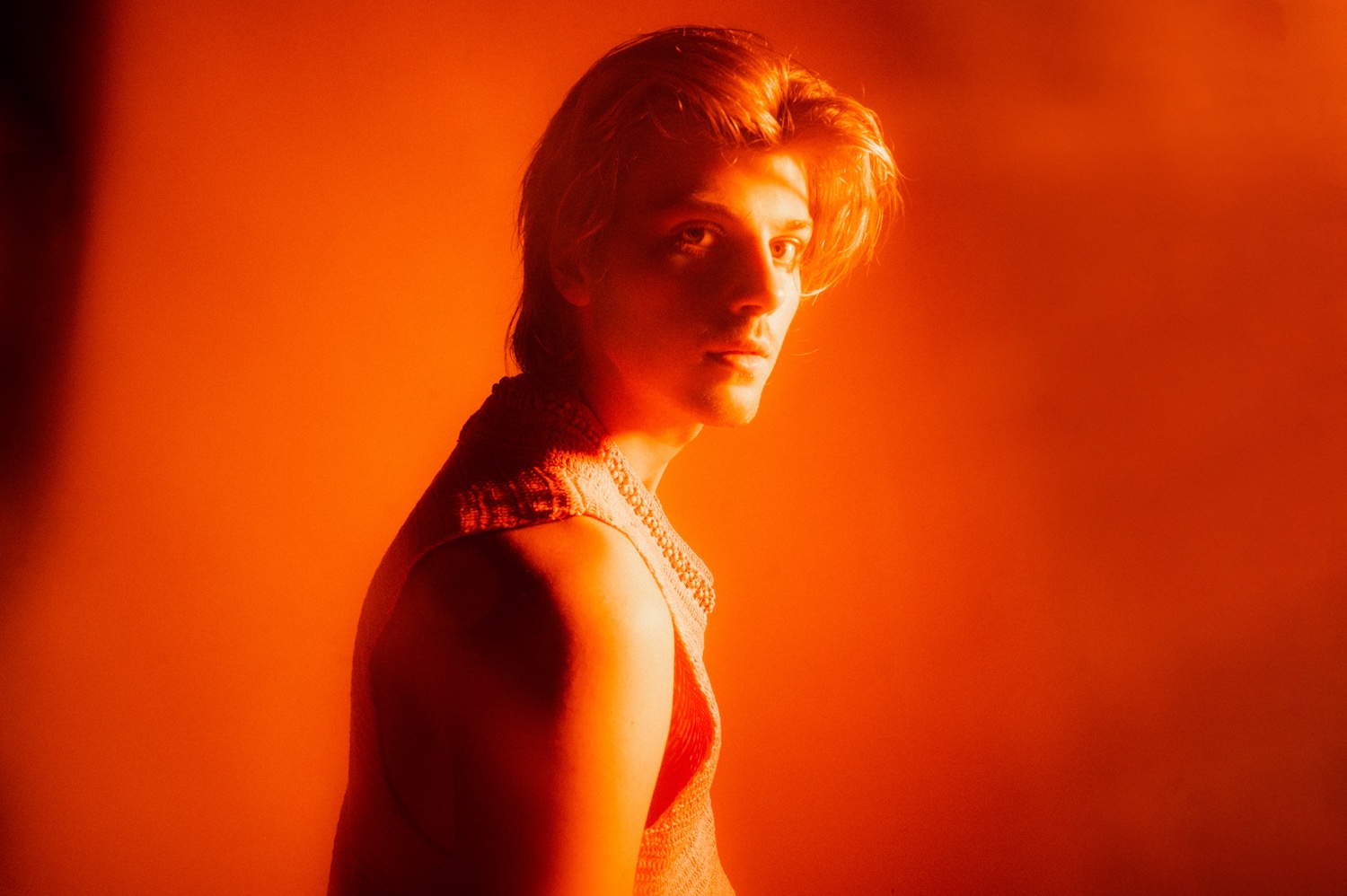
Longtime fans of Ruel’s music may notice an obvious shift in style throughout 4TH WALL.
While the album retains his signature soul-soaked vocals, these songs are less R&B and pop-leaning, and instead more alternative-leaning, with driving guitars and pulsing beats shining alongside Ruel’s charismatic, singular singing voice.
“I was so used to doing R&B, pop, soul stuff which is what I loved and that’s what I really listened to when I was growing up – and that’s all I wrote because that’s what I knew!” Ruel says. “Recently I just stopped listening to R&B and I stopped writing R&B; I don’t feel anything from it, from my voice anymore. I much prefer writing more acoustic guitar and bass stuff. I’m not trying to be all sad and folky and emo – I’m still trying to be me!”
Inspired by “sad” singer/songwriters like Jeff Buckley, Elliot Smith, and Rufus Wainwright, Ruel found his own special balance between upbeat outpourings and heart-on-sleeve upheavals. His songwriting is brutally honest and unapologetically forthcoming, but as he himself notes, “It wasn’t like I was in a sad stage; I just love listening to sad music!”
“I love listening to dreary, moody stuff. That’s what makes me happy. That’s what I started writing a lot of, moving further away from that R&B world, and then I was like, ‘Okay, this is cool, but I feel like I’m still not good at this yet to put it out.’ So I kept having to go back, rewrite, trying to find my strengths, find a middle ground from what I put out before and what I’m putting out now. The album is those inspirations, together with my strengths in the pop and soul worlds.”
From the golden, bold, and bright album opener “GO ON WITHOUT ME” and the high-energy slap-in-the-face “I DON’T WANNA BE LIKE YOU,” to the sweetly stirring serenades “SITTING IN TRAFFIC” and “JAPANESE WHISKEY,” 4TH WALL shines as Ruel’s most emotional, dynamic, and spirited work to date. Hit singles like “GROWING UP IS _____” and “LET THE GRASS GROW” make reappearances on the track list as well, standing out for the catchy and colorful sparks of music that they are, but ultimately it’s the album’s journey as a whole that makes 4TH WALL so special. This record is without a doubt greater than the sum of its parts – and those parts are already great on their own.
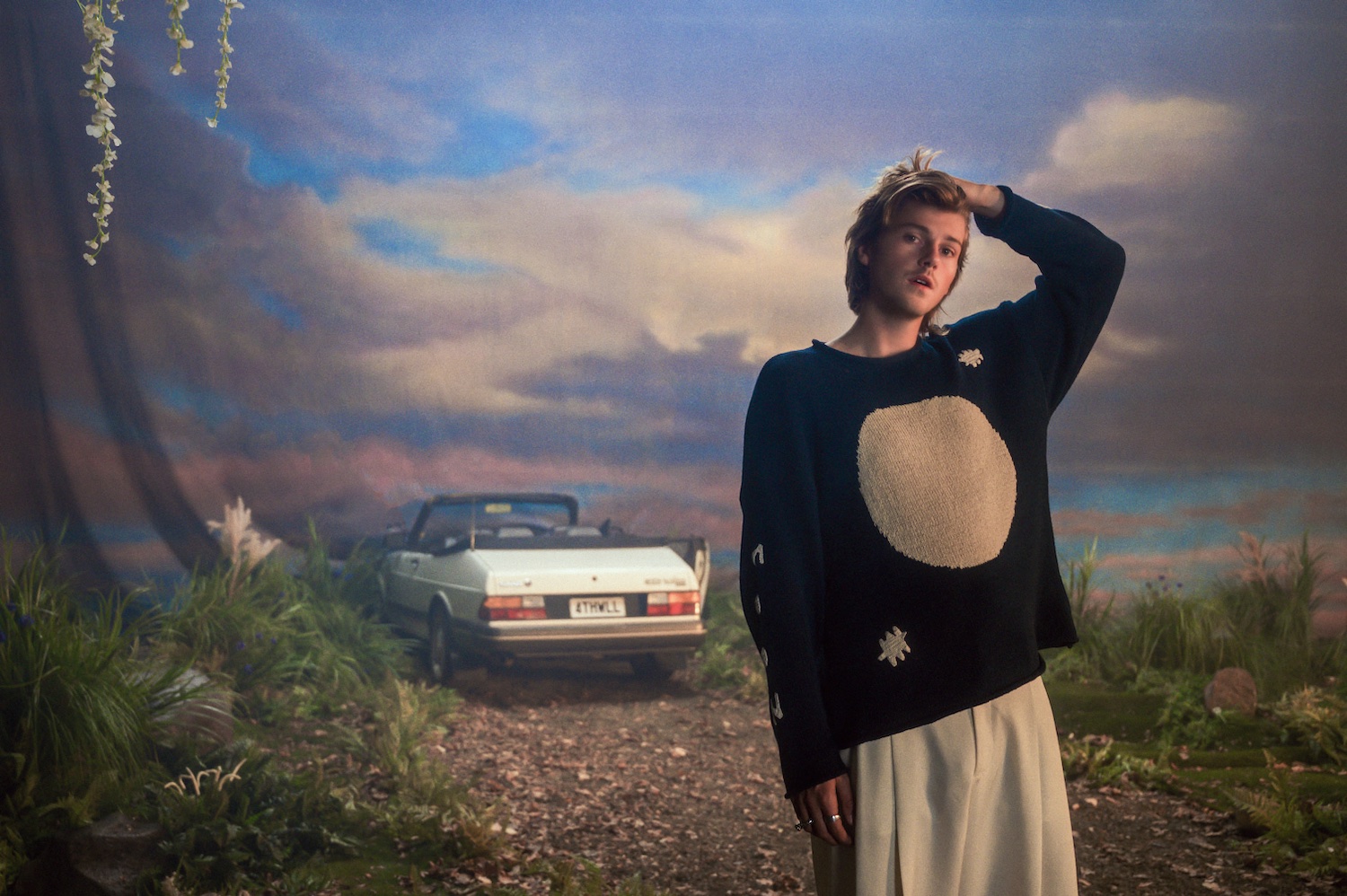
Yet whether his audience listens to one-off singles or the album in its entirety, Ruel hopes that their greatest takeaway is a shred of his own raw humanity.
“I hope just people see it as authentic, and they don’t think I’m writing a record to write a record,” Ruel shares. “I hope they see what I’m trying to do with each song, and trying to find different angles about things that everyone talks about and everyone relates to. I just hope people relate to it. I hope they find ways to relate to it and resonate with it, and know that I’m being authentic and know that I’m not just trying to put out a record to, I don’t know, get a TikTok hit or something. That’s what I want people to take away, and what I took away from it is just that I’m an insane procrastinator – that I had no idea I was! I thought I was fine, and it turns out I’m terrible.”
Experience the full record via our below stream, and peek inside Ruel’s 4TH WALL with Atwood Magazine as he goes track-by-track through the music and lyrics of his debut album!
— —
:: stream/purchase Ruel here ::
Stream: ‘4th Wall’ – Ruel
:: Inside 4th Wall ::
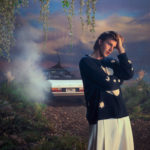
— —
GO ON WITHOUT ME
I wrote “Go on Without Me”with this guy called Scott Harris and Phazes and Scott Harris is all like… He’s an amazing pop writer. And I went with him being like, “Okay, I wanna get some pop stuff.” But then I got Phazes who kind of knows what I like and knows what I love in the more alternative world. And we’re just trying to find a balance.
We had this, yeah, super ’80s like pop uptempo idea like real like hooray sort of [chuckle] music. And I was like, “Okay, this is cool but how can we make this weirdo, like have a little bit of a twist on it?” And I was like, “Oh, we could just make the lyrics really depressing.” And I was like, “Yeah. I’ll do that.” Anyway. [chuckle] Like, “I’ll do that.” And then anyway we record this song and I was like, “Okay, this is cool but I don’t know if it’s really me.” And I was like, “Oh.” And then Phazes like took it away and then like after a few months he came back like with all these drums on it and she just like completely went the opposite direction to where I thought were the drums. And then I was like, “Oh, this is the first song on the record. Let’s set up everyone with a false sense of security. This is gonna be like a happy like ’80S pop sort of like good time and then completely get more depressing from then on.”
I DON’T WANNA BE LIKE YOU
I’ve got a couple of songs like that on the record, that are kinda like “fuck you” songs, which were the most fun to write because I was like, “Okay, I can’t keep writing just really sad lyrics, all that tempo stuff. I’ve gotta find another emotion to drag from.” And I was like, “Okay, anger is another one.” I just didn’t wanna write happy. I didn’t wanna be like, “Everything’s so great. Love life.” That stuff is so… numb to me. When I listen to that I’m just like, “Eh.” So I was like, “Anger is a good emotion to pull from because it still gives you grit and still gives you emotion but it’s like it’s not sadness.” So what can I write that I’m angry about?
And I was like, “Oh, let’s just write something about someone who’s like super out of touch and trying to tell you exactly which path you should go on.” I guess it’s still a kind of, “Don’t Tell Me” world as well, which is funny kind of referencing that. And production, this took years to get there. Like this one, I went through like 40 versions and I didn’t think it was gonna make the album with the amount of go’s we tried and failed but I don’t know, there was definitely something special about it when we got there, it was euphoric.
SITTING IN TRAFFIC
I feel like this is a fan song, for me. I feel like this would be the one the fans gravitate towards ’cause it’s definitely the most… I don’t know, it’s a very euphoric chorus but the intimate verses and the lyrics are super personal and depressing and yeah. I’ve done… This song, production I’ve loved so much as well. I was like… Been obsessed with rubber bridge guitar sound, just muted acoustic sound but going through all these pedals and I wanted to put that everywhere on the record and I was like, no, it’s gonna start sounding too much like Phoebe Bridgers’ record and I was like, I can’t rip that off too hard.
So I just kept it to two songs in the rubber bridge and yeah, I love that song. And I guess it’s a slow jam in a way. It’s the first slow jam of the record, we’re just talking about the end of the honeymoon phase where you’re just, you’re so scared that… You love this person so much that you’re so scared that you’re gonna lose them again when you break up because you… Even this, you’re saying like… It’s really hard to explain but even after you break up, I just hope you still like me. That’s the chorus I guess. [laughter]
JAPANESE WHISKEY
This is one of the earliest songs I wrote. In terms of when I wrote songs, it was like “End Scene” was the first song, then “Let The Grass Grow” then “Japanese Whiskey” and then “Growing Up Is” and then the rest of the songs were all just like written in one trip in LA. So this is an early one and I’ve played this one a bit live as well, which is really fun. I think production-wise this is also probably my favorite song on the record. ‘Cause it goes through these three kind of stages of, it just starts as a piano ballad, kind of walk down, Beatlesy sort of thing. And then the next verse is just like guitar and drums. And then the rest is just like a cacophony of sprinkles which I really love how it’s kind of got like three chapters, this song. And the metaphor about “Japanese Whiskey” I was like so in love with when me and PJ came up with it, he came to the studio and he was like, I wanna write a song called “Japanese Whiskey.”
And I was like… And he was like, do you like Japanese whiskey? And I was like, no. And he was like, fuck. And we were like, how do we make this work? And I was like let’s just start writing about Japanese whiskey and see what happens. And then it kind of turned to the thing of using it as a metaphor for something that you wish you liked, because it sounds so great and it looks so great from the outside but to the actual core of it, you’re not… You just like the idea of it and it’s not really for you and you’re just putting on a front for someone or something. So I was like, oh wow, this got real deep talking about alcohol. And I was like, yeah, it’s great. I was really happy with that.
GROWING UP IS _____
When I wrote it, I was just kind of going through highlights of everyone who I was in the room with, childhood or formative years or whatever I was like… Or just like the core kind of defining moments. And we just wrote a list of like 50 things, like going to the park or whatever, getting lost and drunk or running barefoot on the street, whatever. Just stuff like that. And we wrote like, just so much. And then we just picked all the stuff that rhymed and looked nicely together and we just jammed it in there. And I was like… And then we just had this kind of rolling beat and we were just like, let’s just keep going, do it again and do it again and just make it feel really repetitive and… Anyway then we just had that chorus and I was like, this is really sick.
And then in the verses we tried to kind of make a narrative around it and yeah, that was a really cool song to write. That was with Julian Bunetta and Phazes again. And yeah, that was supposed to be the first song of the album and then “Let The Grass Grow” came out and then a bunch of them we had… And then we had another album ready to go and then we kind of all got cold feet and we just started writing more and more and more. So we’re like… So I was saying, okay, those are just two singles, these won’t be on the album. And then when I got to the finished product, I had 12 songs and “Growing Up Is _____ ” and “Let The Grass Grow” weren’t on the album on my just 12 song list. I put them in just to see what it would sound like, and it fit so well. And I was like, oh, why did I think they weren’t gonna fit? I just assumed that they were gonna be too different. I was like, it’s gonna be too long ago to put it in or whatever but I was like, no. They actually fit really well on the track list and it feels super cohesive with the rest of the album. So yeah, I felt like it was rude not to put them in.
SET YOURSELF ON FIRE
This one I wrote with Mikky Ekko and Gabe Simon and yeah, again, this was about the feeling of coming back home in 2020 and all my… When I was just chilling with all my mates and I wasn’t on tour at all and kind of seeing everyone again and everyone had just finished school, everyone just had finished their final exams and everyone was like, what do we do now? Because no one knew if they wanted to take a gap year ’cause they didn’t know when Covid was gonna start or, so everyone was… But no one wanted to start Uni because Covid was there. So everyone was just in this limbo of not knowing what they wanted to do with their lives or who they were. And I was there and I was like, I don’t know what I’m gonna do with my life now.
I don’t know who I am. I was having such a writer’s block trying to write by myself and I couldn’t tour so I was like, I have no purpose. And we’re all in this feeling like what do we do? And then this song is just about kind of being okay with that feeling and pushing that aside and being like nah, it’s fine. Why give a shit while we don’t know what we’re doing. Let’s just live what we can out of right now and squeeze the good parts out of it.
LIE
So there’s a few, I suppose “breakup” songs on the record that are talking about the same sort of stage. We are on the same sort of feeling in different ways. And this one is… And that feeling is feeling like someone moved on from you before they even broke up with you. Feeling like someone went through the grieving stage and went through the moving on whilst they were still together with you. And then when they broke up with you, they were all fine and they were ready to leave and you are just sitting there like wait, what? You’re like, how did you get all this time and now I have to start all over again now.
And yeah, this one’s just kind of not accepting it and trying not to believe it’s true and just yearning them to tell you that they’re lying and they do love you. So, yeah, this is about kind of asking them to soften the blow even though you know it’s over and yeah, that’s what lyrically it’s about but this is probably my favorite vocal arrangement on the record I think. It came together so quick, we wrote the song in 45 minutes and then I spent two hours just recording harmonies and then we did that kind of the panning left and right, Sufjan Stevens sort of thing. And it just tripled the sadness and I loved it.
LET THE GRASS GROW
This is probably the darkest subject matter on the record. I was writing a lot about songs or the feelings that you had before you fell asleep when you’re kind of just staring up at the ceiling when your brain is just spiraling and you’re going so deep into who you are and what your life is and what the earth is and your importance that you kind of just, you can’t think anymore because you kind of hit that wall. And I was writing a lot about that. And then this particular thought was just like, where I see the earth heading and I was like ugh. There’s feeling helpless and feeling helpless that there’s nothing that just you can do to stop climate change or stop the oceans from rising and stop all these things.
That kind of helpless feeling of like, it takes a village or it takes everyone, it takes these corporations or whatever. But yeah, I was writing this really dark song and the next morning I was just, I was writing about what I was feeling and then it ended up being the same, like the only way I can give back is if I give myself to the earth. If I give my actual body back into the earth. So I was like, that’s a really beautiful metaphor or a pretty amazing image but I was like, damn, this is pretty dark. So I came out with the song with this amazing organization, charity Surfrider Foundation who’re saving coastlines all around the world and right now they’re doing this massive campaign in… I live right by the coast in… The east coast in Australia. So yeah, they’re doing a lot of work here, so I was like oh, it makes a lot of sense. So I kind of tried to put it out with them to give it some context.
YOU AGAINST YOURSELF
This one is intense for sure. I wrote this with Sammy Witte and Emma Rosen; I was going into these sessions being like, I need some more up-tempo shit because the whole album is so slow and depressing. And they were like, okay, got you. And they were just like, make a beat. And then I was like, how? And then it was all just a battle of how can I write lyrics on this that make sense, that aren’t happy. [laughter] And then so I went back to kind of that anger emotion and then I was writing about someone in my life that I feel like is sort of self-sabotaging. And I was was like, oh, that’s right. I can… So this is a song about an intervention with someone and telling them that they gotta pick up their game or change paths because they’re gonna hurt themselves or hurt someone else.
SOMEONE ELSE’S PROBLEM
So this is the next “fuck you” song, I suppose, but a little bit more singalong-y, like just acoustic guitar, smiling while talking about how you’re so stoked that someone is out of your life ’cause they were such a burden or just bringing you down. Just that kind of weight off your back feeling when someone who was not good for you is finally out of your life. That was a really fun song to write!
WISH I HAD YOU
And then it really switches back around, and when I was talking about with “Lie,” that feeling of feeling like someone has moved on from you whilst you’re still in the relationship, this is the most… I get super specific in that feeling in this song. It’s almost a continuation, but instead you’re asking someone to lie to you and say you love them, like you are lying to yourself saying that you’re gonna be fine and you’re gonna lie to them and say, you’re gonna be fine and that you are fine because you think that saying that will make them want you more or want you back.
IF AND OR WHEN
I suppose this is probably the most personal song on the record and like, this came from just pure fear of being in a good relationship [laughs], and all the defense mechanisms or the walls that kind of go out when things are going great. I guess it’s just for when you’re thinking about the world and when you’re thinking about relationships in general, what percentage of them actually go through and make it ‘til the end and make it ‘til you’re both growing old and you live in a little house together. I was thinking about that. That percentage is so low; the odds are stacked against us to stay together.
And then that kind of fear of being like, “Why is that happening? Why are these odds so low?” Are we the exception or are we not? That sort of feeling. It’s a pretty weird thing to think about at the start of a relationship, but when everything’s amazing, you become afraid that something bad might happen.
MUST BE NICE
This is just like the most ballady ballad song on the record. I’ve got a lot of sad songs that sway or have some drums or that kind of move a little bit, but this is just piano – a sad ballad about a breakup. I wanted to write something that’s just super easy to grasp and that I don’t actually have to explain in an interview. Just one thing that everyone can know what it’s about, and yeah that’s exactly what it is. It’s that feeling of being jealous, again, that someone has moved on so quickly, and wondering how the hell they can do that and why can’t I feel like that? It’s a pop ballad… I wanted to write a good one of them, and I was writing it with some of the best people in the world that do that. I was writing with the TMS guys who wrote “Someone You Loved” by Lewis Capaldi and a bunch of other amazing stuff. So I was like, “I want one then,” and then I tried my best!
END SCENE
Because it just felt like the end of something. As soon as I wrote it, I was like, this is like, it’s the end. It’s like we had this massive like a minute outro that Phazes put together that was just so… I don’t know. It was like, honestly, you’re driving away in a car and you’re waving to people. That’s like just how it felt. And it was based off the last scene of Fight Club, all the visuals of them looking through the glass holding hands while the buildings are falling down. And like for me that just signifies the end of something about how like crazy the road has been before and you’re reminiscing back on those times and now you’re just ready to die or whatever or not die but ready to move on and part ways.
And, yeah, I think I’ve really just wanted to write a song without chord progression of just like the C to C Major 7 and just really simple and really emotional and yeah, I don’t know, everything was based off the visuals of that movie and as soon as I wrote it I was like, yeah, this is the end of the record and I’m so happy I still stuck with that. This song shaped the whole visuals of the record. Like that lyric in it is the album cover, “We lost all control. Wish I hadn’t known that the road would hit the sunset. Are we having fun yet?” The road hitting the sunset is the album cover.
— —
:: stream/purchase Ruel here ::
— — — —

Connect to Ruel on
Facebook, Twitter, Instagram
Discover new music on Atwood Magazine
© Michelle Grace Hunder
:: Stream Ruel ::

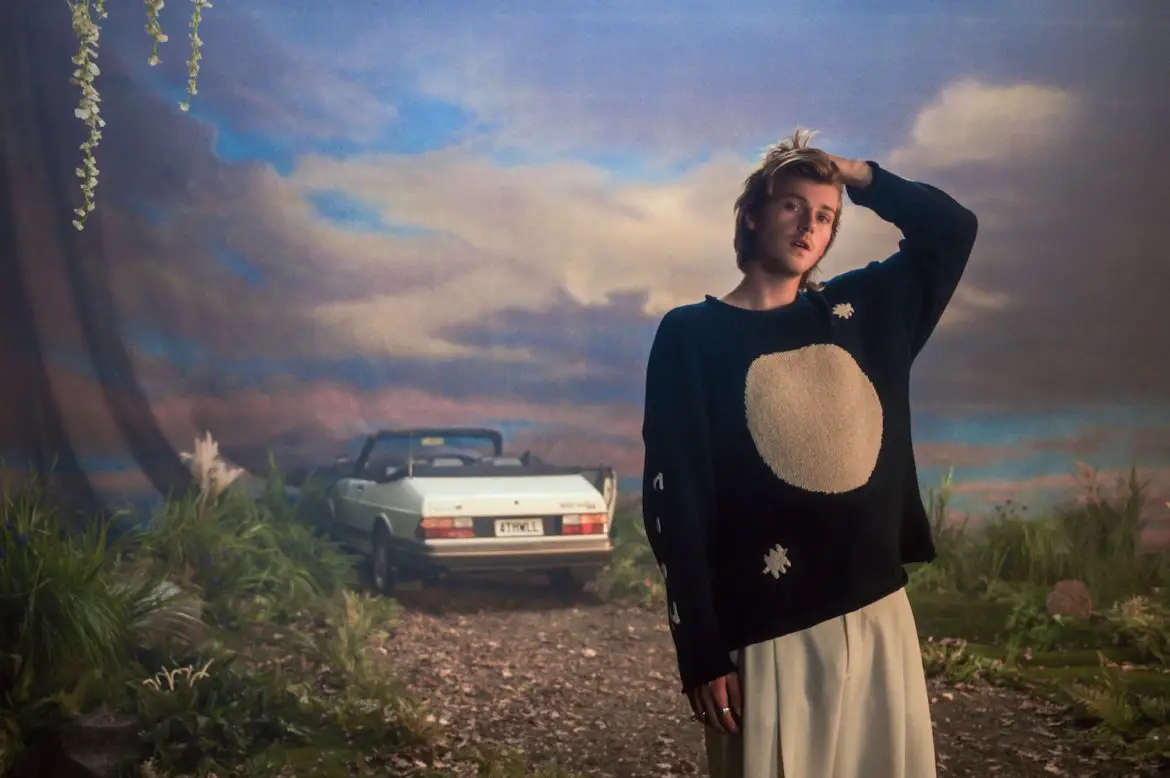
 © Michelle Grace Hunder
© Michelle Grace Hunder
